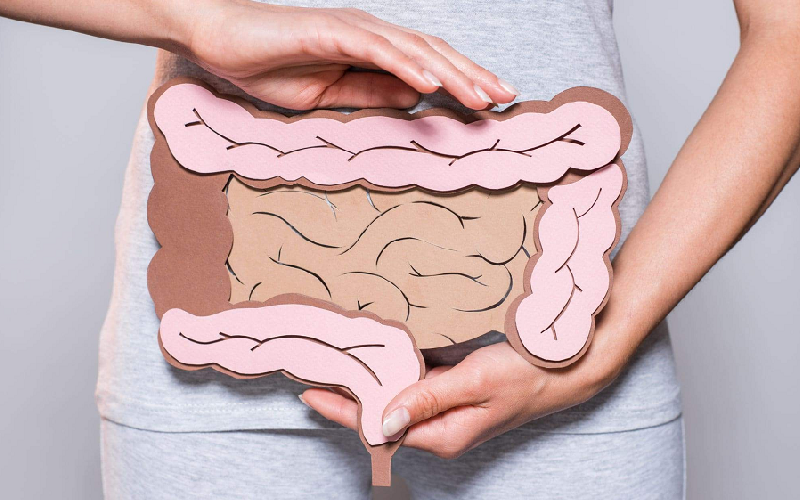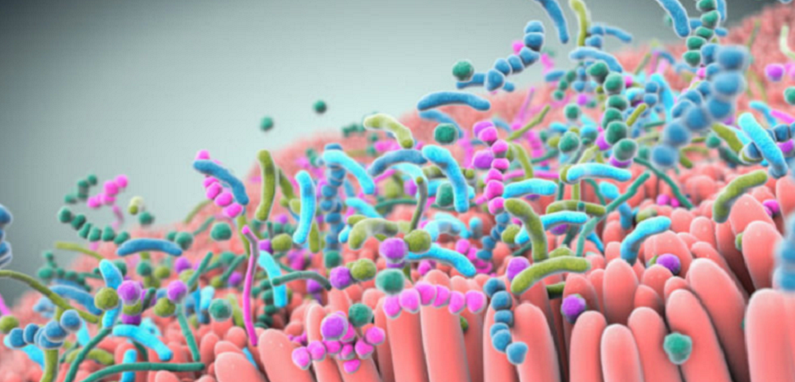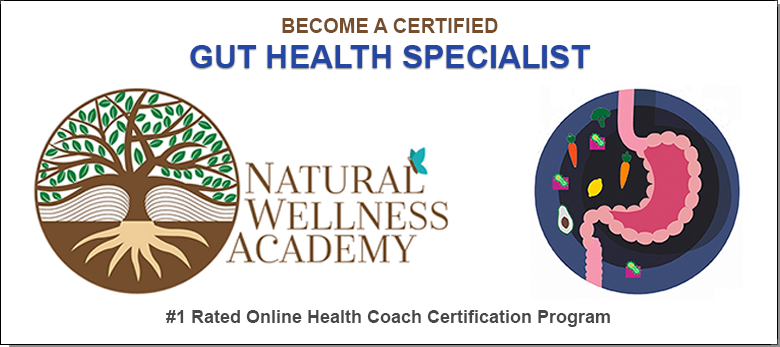
The connection between gut health and mental well-being is more significant than many realize. Often referred to as the “gut-brain axis,” this relationship highlights how the state of our digestive system can influence our mood, mental clarity, and overall psychological health. Recognizing the importance of this connection opens up a pathway to improved well-being through holistic approaches.
Contents
Introduction to the Mind-Gut Connection
Understanding the link between gut health and mental well-being is essential for anyone looking to improve their overall health. This connection, known as the “gut-brain axis,” demonstrates how the state of our digestive system can have a profound impact on our mental and emotional health. By exploring this relationship, we can uncover holistic approaches that benefit both the body and the mind.
Brief Overview of the Mind-Gut Connection
The gut-brain axis is a complex communication network that links the emotional and cognitive centers of the brain with peripheral intestinal functions. This connection is mediated by the nervous system, hormones, and the immune system. A healthy gut contributes to a healthy mind, influencing mood, cognition, and mental health.
Importance of Gut Health for Overall Well-Being
Gut health plays a critical role in our overall well-being. A balanced and diverse microbiome, the community of microorganisms living in our intestines, supports digestion, nutrient absorption, and immune function. When gut health is compromised, it can lead to inflammation, poor nutrient absorption, and a host of digestive issues, all of which can negatively impact mental health.
Understanding the Mind-Gut Connection
The intricate relationship between the gut and the brain, often referred to as the gut-brain axis, highlights the significant influence these two organs have on each other. This connection involves complex communication pathways that play a crucial role in maintaining both physical and mental health.
The Gut-Brain Axis: Communication Pathways
The gut-brain axis consists of bidirectional communication between the central nervous system and the gastrointestinal tract. This interaction involves neural, hormonal, and immunological signaling pathways. The vagus nerve is a primary route of communication, transmitting signals from the gut to the brain and vice versa. This system ensures that changes in the gut can affect brain function and that mental states can impact gut health.
Role of the Microbiome in Mental Health
The gut microbiome, a diverse community of microorganisms residing in the intestines, plays a vital role in influencing mental health. These microorganisms produce neurotransmitters like serotonin and dopamine, which are crucial for regulating mood and cognitive functions. An imbalance in the microbiome, known as dysbiosis, has been linked to conditions such as anxiety, depression, and other mood disorders. Maintaining a healthy and diverse microbiome is essential for supporting mental well-being.
Scientific Studies Supporting The Connection
Numerous scientific studies have highlighted the strong link between gut health and mental health. Research has shown that individuals with mental health conditions often have altered gut microbiota. For instance, a study published in the journal “Psychiatry Research” found that patients with depression had lower levels of certain beneficial bacteria. Another study in “Nature Microbiology” demonstrated that probiotics, which support a healthy gut microbiome, can reduce symptoms of anxiety and depression. These findings underscore the importance of a healthy gut in maintaining mental well-being [1].

Holistic Approaches to Gut Health
Enhancing gut health is crucial for maintaining overall well-being and mental health. Holistic approaches focus on natural and integrative methods to support and improve gut function. These methods include dietary changes, hydration, and the use of supplements, each playing a significant role in promoting a healthy gut environment.
Diet And Nutrition
A balanced diet is the foundation of good gut health. What we eat directly impacts the composition and function of our gut microbiome.
Importance Of A Balanced Diet
A balanced diet provides the essential nutrients needed for the body to function correctly. Consuming a variety of fruits, vegetables, whole grains, lean proteins, and healthy fats ensures that the gut receives a diverse array of nutrients that support the growth of beneficial bacteria.
Probiotic-Rich Foods
Probiotic-rich foods contain live beneficial bacteria that can enhance gut health. Foods like yogurt, kefir, sauerkraut, kimchi, and other fermented products introduce these helpful microbes into the digestive system, promoting a balanced microbiome.
Prebiotic Foods
Prebiotics are non-digestible fibers that serve as food for beneficial bacteria in the gut. Foods such as garlic, onions, leeks, asparagus, and bananas are excellent sources of prebiotics. Incorporating these foods into your diet helps support the growth and activity of healthy gut bacteria.
Anti-inflammatory Foods
Chronic inflammation can negatively impact gut health. Including anti-inflammatory foods in your diet, such as berries, fatty fish, olive oil, and leafy greens, can help reduce inflammation and support a healthy gut environment.
Hydration And Gut Health
Staying hydrated is essential for maintaining optimal digestive function. Adequate fluid intake helps with the movement of food through the digestive tract and supports the health of the gut lining.
Importance Of Staying Hydrated
Proper hydration aids in digestion, nutrient absorption, and the elimination of waste. Drinking enough water throughout the day ensures that the digestive system functions smoothly, preventing issues such as constipation and bloating [2].
Herbal Teas And Their Benefits
Herbal teas can provide hydration and additional benefits for gut health. Teas such as ginger, peppermint, and chamomile have soothing properties that can aid digestion and reduce gastrointestinal discomfort. Incorporating herbal teas into your daily routine can be a comforting way to support gut health.
Supplements For Gut Health
Supplements can offer additional support for maintaining a healthy gut, especially when dietary intake alone may not be sufficient.
Probiotics And Their Benefits
Probiotic supplements contain concentrated doses of beneficial bacteria that can help restore and maintain a balanced gut microbiome. These supplements can be particularly useful after a course of antibiotics or during times of increased stress, both of which can disrupt gut bacteria.
Omega-3 Fatty Acids
Omega-3 fatty acids, found in fish oil and flaxseed oil supplements, have anti-inflammatory properties that can support gut health. These healthy fats help reduce inflammation in the gut and promote a healthy digestive environment.
Digestive Enzymes
Digestive enzyme supplements can aid in the breakdown and absorption of nutrients. These enzymes can be particularly beneficial for individuals with digestive disorders or those who have difficulty digesting certain foods. By improving nutrient absorption, digestive enzymes help support overall gut health [3].
Holistic Approaches to Mental Well-being
Mental well-being is an integral part of overall health, influenced by various factors including lifestyle choices and daily habits. Holistic approaches to mental well-being focus on natural methods that nurture the mind, reduce stress, and promote a balanced emotional state.
Mindfulness And Meditation
Mindfulness and meditation are powerful practices that can significantly enhance mental well-being. They involve focusing the mind on the present moment and cultivating a state of awareness and calm.
Benefits Of Mindfulness For Mental Health
Practicing mindfulness can reduce stress, anxiety, and depression. It helps individuals become more aware of their thoughts and feelings without judgment, leading to improved emotional regulation and a greater sense of peace.
Simple Meditation Techniques
Simple meditation techniques, such as deep breathing exercises, guided imagery, and mindful walking, can be easily incorporated into daily routines. These practices help calm the mind, reduce stress, and enhance mental clarity, contributing to overall well-being.
Physical Exercise
Physical exercise is essential for maintaining mental health. Regular physical activity has numerous benefits for both the body and the mind.
Role Of Exercise In Mental Health
Exercise releases endorphins, which are natural mood lifters. It also reduces levels of the stress hormone cortisol, helping to alleviate anxiety and depression. Engaging in regular physical activity can improve sleep quality, boost self-esteem, and enhance cognitive function.
Types Of Exercise Beneficial For Mental Well-Being
Various types of exercise can benefit mental well-being, including aerobic activities like walking, running, and swimming, as well as strength training and yoga. Finding a form of exercise that is enjoyable and sustainable is key to maintaining a regular routine [4].
Stress Management Techniques
Effective stress management is crucial for maintaining mental well-being. Chronic stress can have detrimental effects on both physical and mental health, so adopting techniques to manage stress is essential.
Identifying Stressors
The first step in managing stress is identifying its sources. Keeping a stress journal can help pinpoint specific stressors and patterns. Once identified, strategies can be developed to address and mitigate these stressors.
Relaxation Techniques
Relaxation techniques such as progressive muscle relaxation, deep breathing exercises, and guided meditation can help reduce stress levels. These techniques promote a state of calm and relaxation, counteracting the effects of stress on the body and mind.
Importance Of Sleep
Adequate sleep is vital for mental health. Sleep deprivation can exacerbate stress, anxiety, and depression. Establishing a regular sleep routine, creating a restful environment, and practicing good sleep hygiene can improve sleep quality and overall mental well-being.
References
[1] Naturopathic Approaches to Gut Health
[2] Natural Ways to Maintain a Healthy Gut
[3] 4 Ways to Improve Gut Health & Reduce Inflammation
[4] A Holistic Approach to Gut Health: Where to Start?

